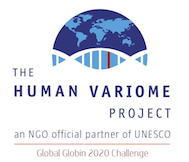
The Global Globin Network (GGN), an initiative of the Human Variome Project (HVP), addresses the global health problems imposed by haemoglobinopathies, with focus on the integration of advanced diagnostic techniques in health systems and the systematic collection and sharing of variation and epidemiological data in internationally recognized databases. By pooling knowledge globally, GGN allows data-driven implementation of disease management and prevention programmes. In an article published in the March 31 issue of the Journal of Personalised Medicine, the GGN proposes a universally applicable system for evaluating and grouping countries based on qualitative indicators according to the quality of care, treatment, and prevention strategies for haemoglobinopathies. This approach serves both as a baseline for evaluating progress over time and for identifying areas of local priority that could benefit from knowledge and skill transfer under the proposed improvement scheme. All curated data is based on expert opinion and is accessible through the ITHANET Portal (https://www.ithanet.eu/). Country groupings into four categories A through D are based, respectively, on A) availability of well-established services with a national system for prevention and control, B) partial availability of services as part of a fragmented national control programme, C) availability of services but not as part of a sustainable national control programme, and D) scarcity of services or lack thereof. The classification of countries into groups based on similar needs and priorities for knowledge sharing and collaboration seeks to narrow the gap between countries, towards improved health outcomes for patients nationally within GGN partner countries and internationally. The paper is available here.
